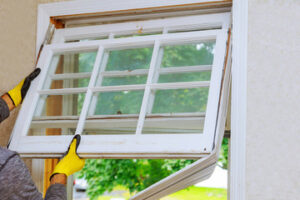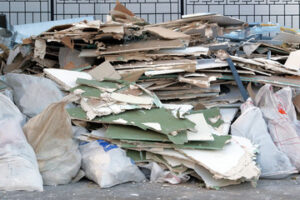A septic tank should be pumped when the light scum layer or the dark sludge layer approaches the top or bottom of the tank respectively. The sludge and scum is then carried to the soil absorption field where anaerobic bacteria break it down further.
Leaving a septic tank too long can cause solids to overflow the leach field. This leads to draining issues in the home and expensive repairs. Contact a Septic Tank Pump Out Perth now!

The cost of septic tank pump out depends on many factors, but the size of the septic system is the biggest factor. Larger tanks require more frequent pumping and will cost more to clean. Keeping up with the recommended frequency of septic tank cleaning and inspections can reduce costs.
Another important factor in septic tank costs is the geographic location of your home. Prices can vary dramatically from urban to rural areas. This is because the price of living tends to be higher in rural areas.
When choosing a septic tank service provider, it is important to get multiple quotes from different companies. Doing so will help you find the best possible prices and save money. It is also a good idea to ask for a written estimate. This will ensure that you know exactly what services are included in the price.
In addition to septic tank pumping, you should also be aware of other associated fees and expenses. These can include the cost of a septic system inspection, repair or replacement, and the cost of disposal of sewage. These expenses can add up quickly, so it is important to plan ahead and budget accordingly.
A septic tank can last for up to 40 years if properly maintained, but if it is not, harmful sewage can back up into homes and groundwater supplies. This can be an expensive and hazardous problem to fix, so it is vital to keep up with regular septic tank pumping and inspections.
Liquid wastes flow downward through a series of porous pipes to the septic tank draining field, where they are dispersed into the soil. Solid wastes break down under the effect of anaerobic bacteria into a sludgy substance that collects in the septic tank. This sludge is then flushed out into the leach field or into an aerobic treatment system (ATS).
The most common way to prevent expensive septic tank repairs is to avoid putting inappropriate waste into the septic tank. Avoid flushing paper towels, cigarette butts, diapers, and chemical drain cleaner down the toilet. Also, limit the amount of water you use daily. This will prevent the septic tank from filling up too quickly and will reduce the need for pumping.
Septic tanks are underground storage tanks for sewage waste from homes that don’t have access to municipal sewer systems. They separate solid waste from wastewater so clear liquid can drain into the soil without contaminating water supplies or harming the environment. Wastewater is separated into layers of sludge and scum that settle at the bottom of the tank and effluent that flows to the drainfield. A septic tank needs to be pumped periodically to remove the excess solids that could clog the pipe from the septic tank to the drainfield or obstruct the drainfield itself.
The frequency of pumping depends on how much household waste is produced and the size of the septic tank. A family of four will produce more waste than a single person living alone, which means the septic tank will fill up faster and need to be pumped out more frequently. Other factors that affect septic tank cleaning frequency include the types of cleaners, soaps and chemicals used in the home. The use of harsh products kills beneficial bacteria and causes solids to build up more quickly.
Usually, the septic tank will need to be pumped out when the sludge reaches 6 inches in height or when the scum layer reaches the top of the septic tank. A professional can help you determine how often your septic tank should be pumped based on your household usage and the size of the tank.
Signs that it’s time to have your septic tank pumped include a wet, soggy area around the drainfield and foul odors from the septic system. Another warning is when the grass near the septic tank is greener than the rest of the yard. This could indicate that sewage is backing up into the yard through a clogged or overflowing drain line.
You should also have your septic tank pumped if you notice a gurgling sound coming from drains and toilets. This is a sign that air pockets have formed, which can cause wastewater to back up into your home and make the drains smell like sewage.
Septic tank pump outs can be dangerous to both the homeowners and the workers who are involved in this process. The pumping truck must drive very close to the septic tank, which can cause damage to the pipe connections, if they are not carefully made. The septic tank itself must also be checked for cracks or other damage that may need to be repaired.
It is also important to prepare the area around the septic tank before the pumping trucks arrive. Make sure there is enough room for the truck to park, and trim any trees or bushes that are growing around the tank. Also, make sure the lid on the septic tank is secured and that there is a key to open it. This will prevent children or pets from accidentally falling into the tank.
While a septic tank is buried beneath the ground, it has a vertical extension called a riser that extends to the surface, allowing access for cleaning and inspection. These risers are often positioned at eye level and can be dangerous for small children. When they are not properly secured, children can easily knock them over and fall into the pit. If a child falls into the septic tank, it can be fatal.
The septic tank contains both the sludge and scum that are left behind from household waste. While these solids are usually harmless, they can build up in the absorption field, clogging it and restricting wastewater flow. The resulting biomat can be very dangerous to people and animals, as well as pollute groundwater.
Some solids will decompose in the tank, while others will float to the top of the septic system and be carried by water into the soil absorption field. This can cause the inlet and exit pipes to clog, which can lead to backups into the home. In addition, the soil absorption field can be covered with an impermeable layer of sludge, which requires expensive removal and replacement.
To avoid these dangers, it is important to keep household wastes to a minimum and not dispose of anything that should not go down the drain. Grease, cooking fats, chemical drain openers, paint, varnishes, solvents, gasoline, waste oil and photographic solutions can all disrupt the natural bacterial action in the septic tank and the underlying soil. In addition, do not use chemical-based septic tank additives to speed up decomposition. These can also disturb the microbial community in the soil and pollute groundwater.
The septic tank system is responsible for the treatment and disposal of wastewater from households that lack a public sewer connection. Wastewater from homes enters the septic tank where solids settle and form a layer of sludge, while liquids rise to the top as effluent. This sludge and effluent are then dispersed into the drain field through a network of porous pipes.
Once in the soil, the effluent is treated by bacterial action to neutralize pathogens and make it safe for groundwater supplies. However, this process can be disrupted if the septic tank is overloaded. Overflow from a full septic tank can contaminate surface water bodies by seeping above ground and running off into streams, rivers, and lakes. This contaminated water can be ingested by wildlife and humans.
Regular septic tank pumping reduces the likelihood of overflow and protects the environment. In addition to preventing environmental damage, it also saves money on expensive cleanup and repair costs.
A professional septic tank pumping service uses a truck equipped with a large tank and a giant suction hose. They begin by locating the septic tank and possibly digging up some of your yard to access it. Once they’ve located the septic tank, they’ll start pumping out its contents. This process usually takes about 30 – 60 minutes.
Once the septic tank is empty, the professional will return to their truck and drive away. The septic tank’s contents will be sent to a sewage processing plant or to an independent, for-profit company that specializes in the treatment of septage. They may also be dumped in approved landfills. These sites have been regulated to limit the amount of septage that is dumped in them.
Homeowners can help minimise the impact of septic systems on the environment by reducing water usage, using energy-efficient toilets, and repairing leaks and faucet drips. Keeping the septic tank clean and getting it pumped regularly can extend its life and reduce maintenance costs. It’s also important to protect the septic tank from outside damage, which can lead to cracking and leaking effluent into the surrounding soil.







